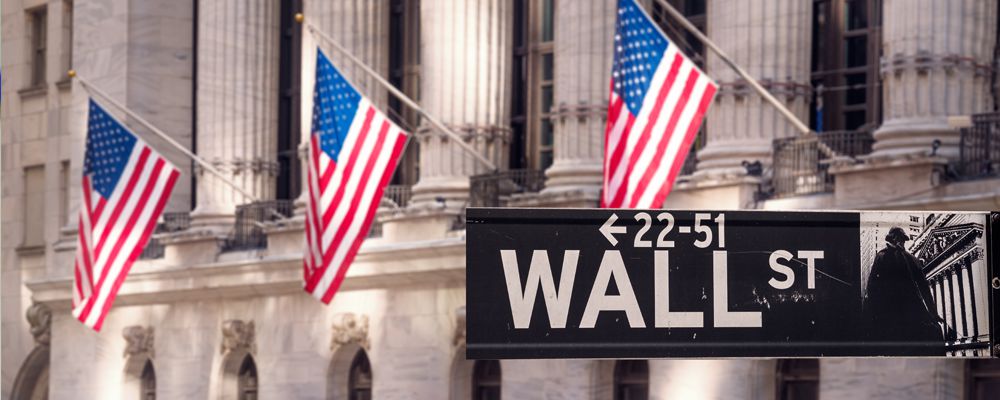Is the market signalling an end to this economic cycle?
- Thursday, May 19, 2022
 Equity, credit and bond markets around the world have posted negative returns in the first five months of 2022. This has been driven by a combination of historic re-pricing of asset values due to the tightening of monetary policy in response to raising inflation and geopolitical risks over Russia’s invasion of Ukraine.
Equity, credit and bond markets around the world have posted negative returns in the first five months of 2022. This has been driven by a combination of historic re-pricing of asset values due to the tightening of monetary policy in response to raising inflation and geopolitical risks over Russia’s invasion of Ukraine.
Since Q3 of 2021, The Federal Reserve policy position has moved from pricing in two interest rate hikes in 2022 to now up to seven consecutive rate increases leading to the Fed Funds interest rate hitting 2.5% by the end of 2022. Monetary policy has become tighter around the world as governments seek to limit the impact of high inflation.
At the heart of broad asset market volatility is the fall in the bond markets. Usually, if equities are facing a challenging period, bond yields tend to fall, meaning their prices rise. However, the rise in inflation has reversed the usual equity-bond relationship. This time the rise in yields is driving equity markets lower. We have therefore endured both the re-pricing of equities at the same time as the re-pricing of bonds.
These developments along with the high increase in energy and agricultural commodities raises the question – is the market signalling an end to this economic cycle?
Despite the many headwinds, fund management groups feel that the global economy will muddle through but investors will have to expect lower returns and high inflation rates that will last into 2023. Commentators feel that the evidence in the economy shows little chance of a recession in 2022. The levels of employment, liquidity, government investment and consumer savings rates suggest a global growth opportunity once inflation has peaked. The war in Ukraine has further complicated the global outlook.
Household incomes are being squeezed and this is likely to affect the spending habits of lower income families more than those who saved money through Covid. There is large excess savings across the developed world and households are catching up on travel and holidays.
While a recession in 2022 is seen as unlikely, as there is still strong activity in the world economy. A recession in 2023 is a possibility as US interest rates increase the threat of a policy error. The Federal Open Markets Committee (FOMC) look set on further rate rises and a recession is a possible trade off for lower costs. The Fed will seek to restore the balance between supply and demand so there is sufficient slack to ease price pressure and wage demands.
When we researched our Edition 36 portfolios in November 2021, we were expecting just two rate rises from the Fed in 2022, with the first in July. Perceptions started to change soon after. In January 2022 the FOMC announced that QE would end in March so that the first-rate rises could start. The Fed suggested 4-5 rate hikes which has now risen to 6-7 hikes.
The Feds QE programme has provided liquidity easing on a massive scale. The total QE spend was US$3tn or 20% of GDP. This programme of monthly bond purchases has now ended and maturing bonds sold back. The US employment market is as good as it has been for the past 50 years so this gives confidence to the Fed about tightening. If we assume that wages are likely to rise due to inflation and high employment levels then the Fed could not delay its actions.
US assets responded well to the rate cut by rising 3% but declined the next day by -4.5% due to the overall economic outlook.
A key issue is how the war in Ukraine will affect growth and inflation. Russia was the world largest exporter of gas, wheat, palladium and nickel in 2020 and the second largest exporter of oil. Ukraine was a top five exporter of wheat, barley, corn and millet. Europe is the most vulnerable region to a prolonged conflict and has the most to gain from a rapid resolution. At present the most likely is a prolonged conflict but whatever the outcome, governments will be committed to higher defence spending and an accelerated drive to new and alternative energy sources. This will give a boost to the defence and industrial sector as well as traditional and clean energy providers.
The majority of fund groups feel that recession will be avoided. The peak of US inflation is expected in Q3. This will be a key moment as will the change in outlook in China.

Chris Davies
Chartered Financial AdviserChris is a Chartered Independent Financial Adviser and leads the investment team.
About Estate Capital
Financial Services
Our Contacts
7 Uplands Crescent,
Swansea, South Wales,
SA2 0PA.
Tel: 01792 477763
